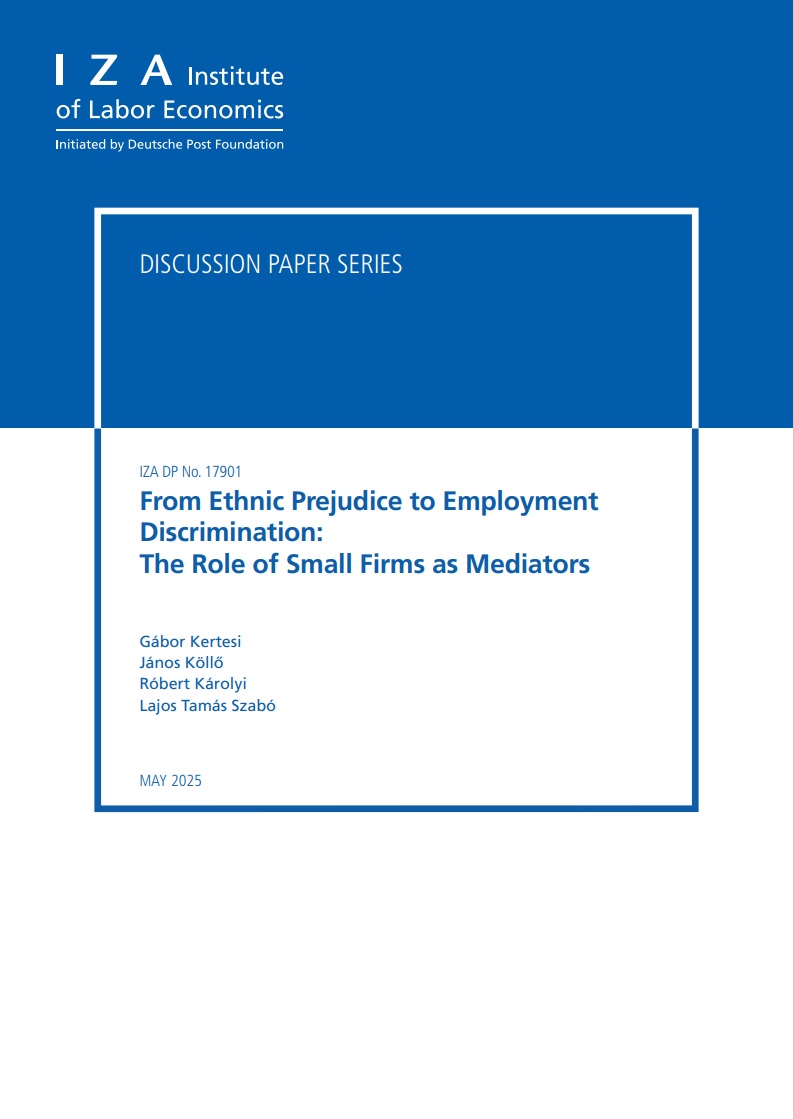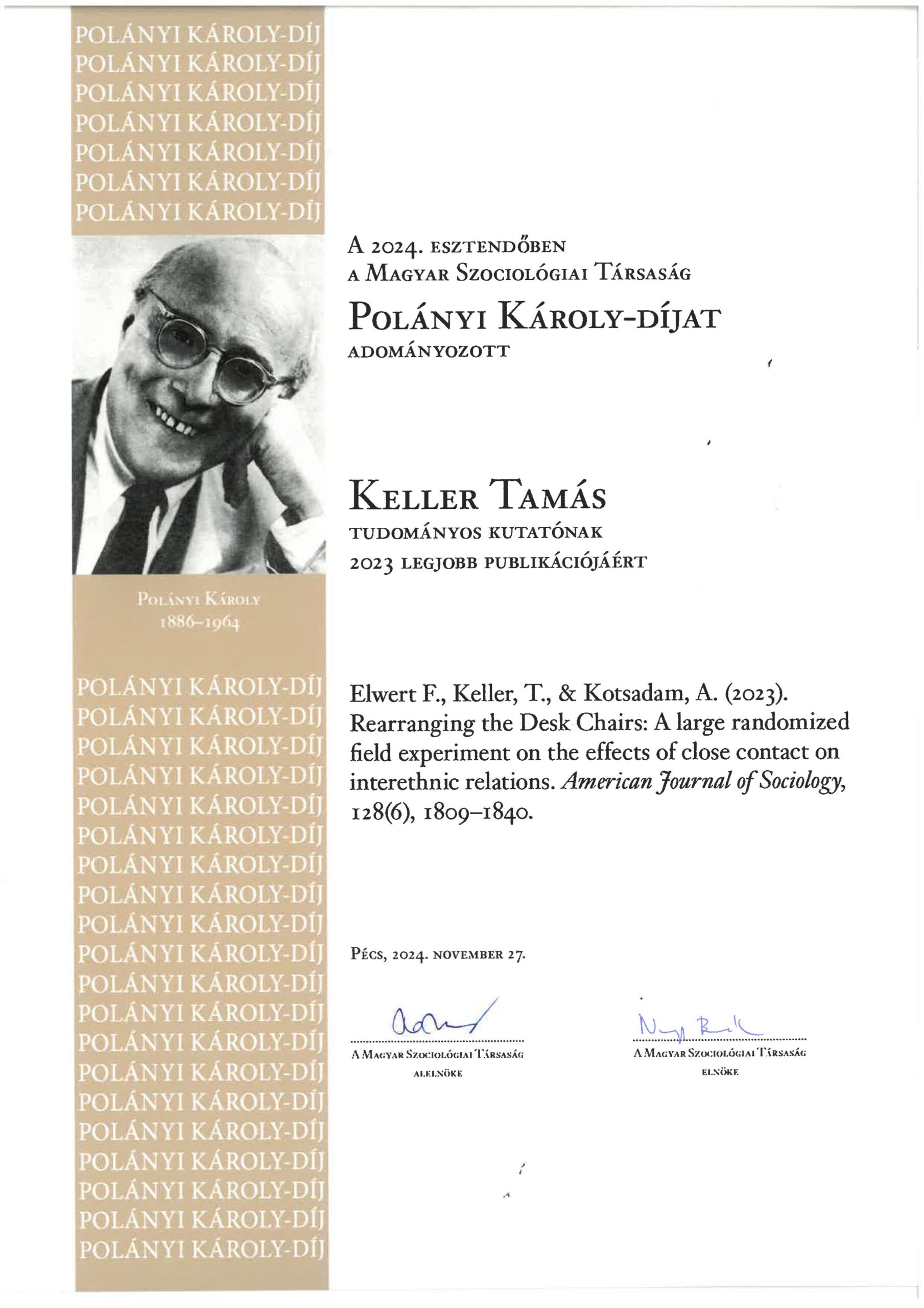Evaluating the effect of a drastic cut in unemployment benefit duration on re-employment and wages of jobseekers
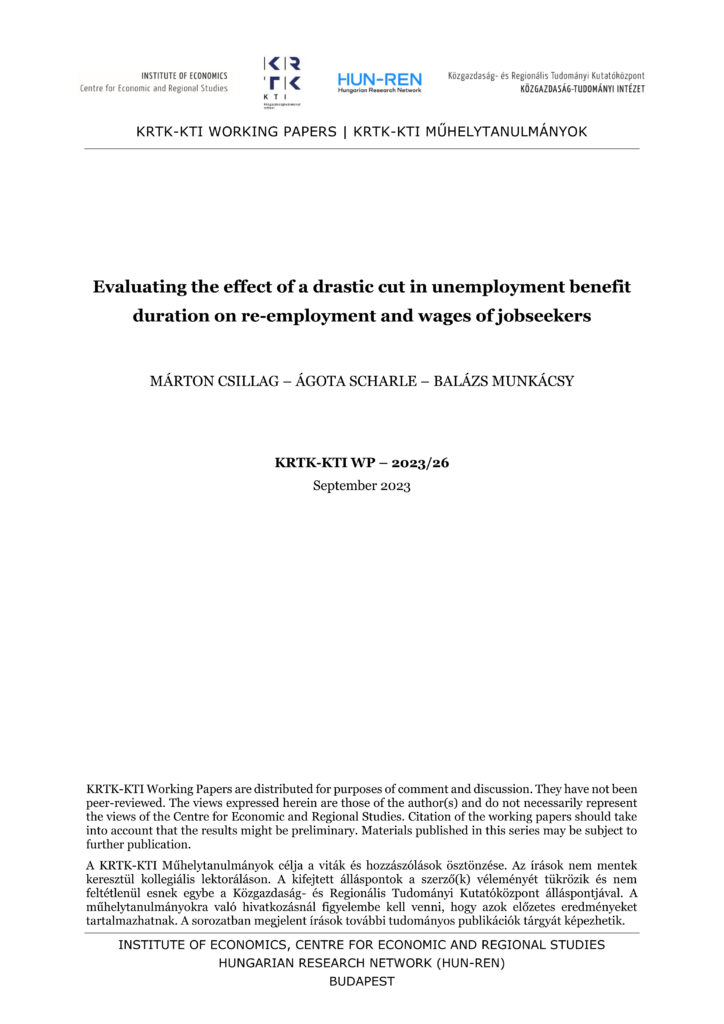
We evaluate the effect of a drastic cut in potential benefit duration, reducing the maximum length of UI benefits from 9 to 3 months in Hungary at the end of 2011. We rely on rich longitudinal matched administrative data, which allows us to obtain information on a large sample of UI benefit claimants, and we […]
Temperature exposure and sleep duration: evidence from time use surveys
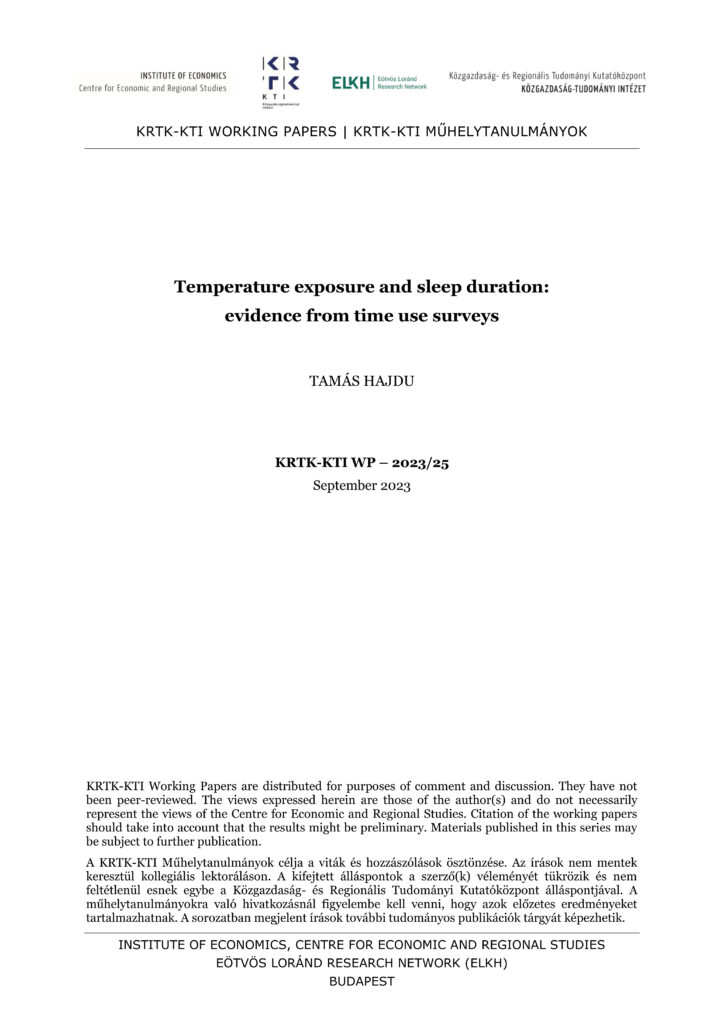
The Earth’s climate is projected to warm significantly in the 21st century, and this will affect human societies in many ways. Since sleep is a basic human need and part of everyone’s life, the question of how temperature affects human sleep naturally arises. This paper examines the effect of daily mean temperature on sleep duration […]
A rational pension reform package: Hungary, 2025
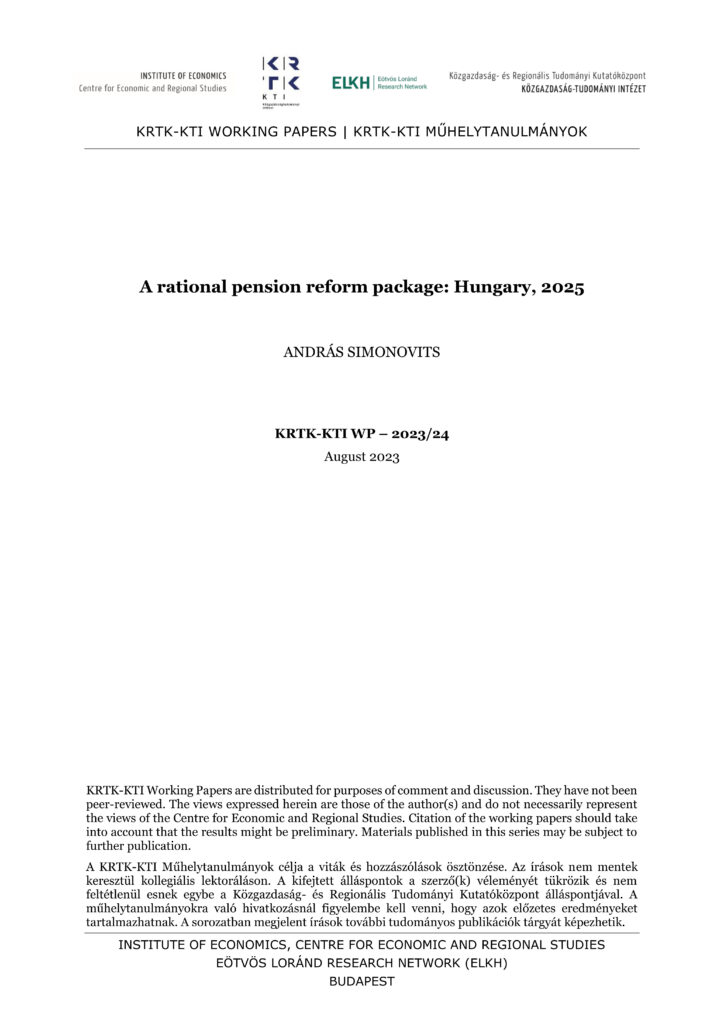
As part of the Recovery and Resilience Plan (RRP, 2023), the Hungarian government pledged to reform the pension system. The main themes are sustainability and adequacy. The pension plan is to be discussed publicly and put into law by March 2025. The last detailed official pension study was the 2016-discussion paper of the Hungarian National […]
The development of the Central and Eastern European venture capital market in Europe
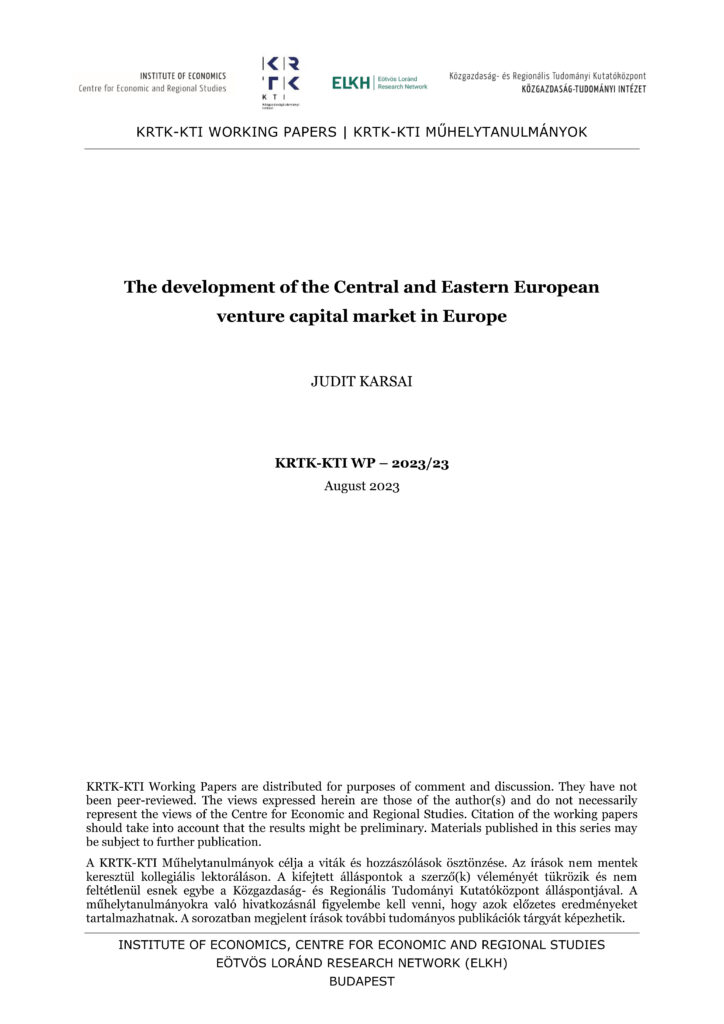
The working paper examines the role and development of the Central and Eastern European venture capital sector in the five years between 2016 and 2020. This period includes both the end of the recovery after the economic crisis in 2008 and the downturn due to the coronavirus crisis in 2019. A statistical analysis of venture […]
Accident-Induced Absence from Work and Wage Ladders
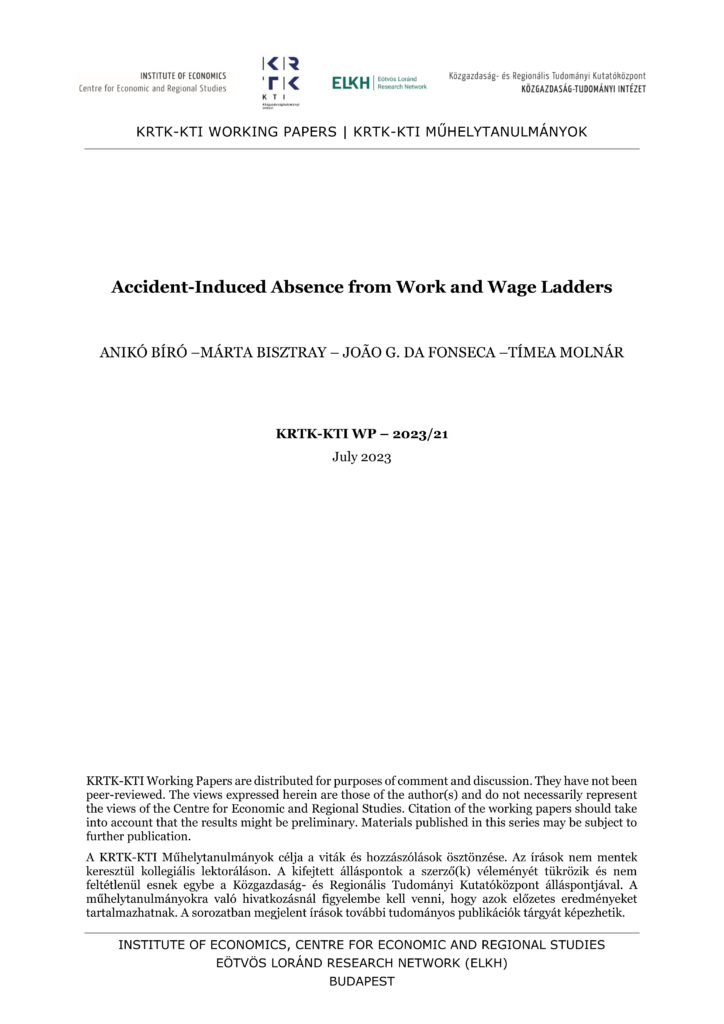
How do temporary spells of absence from work affect individuals’ labor trajectory? To answer this question, we augment a `wage ladder’ model, in which individuals receive alternative take-it-or-leave-it wage offers from firms and potentially suffer accidents which may push them into temporary absence. In such an environment, during absence, individuals do not have the opportunity […]
In utero shocks and health at birth: the distorting effect of fetal losses
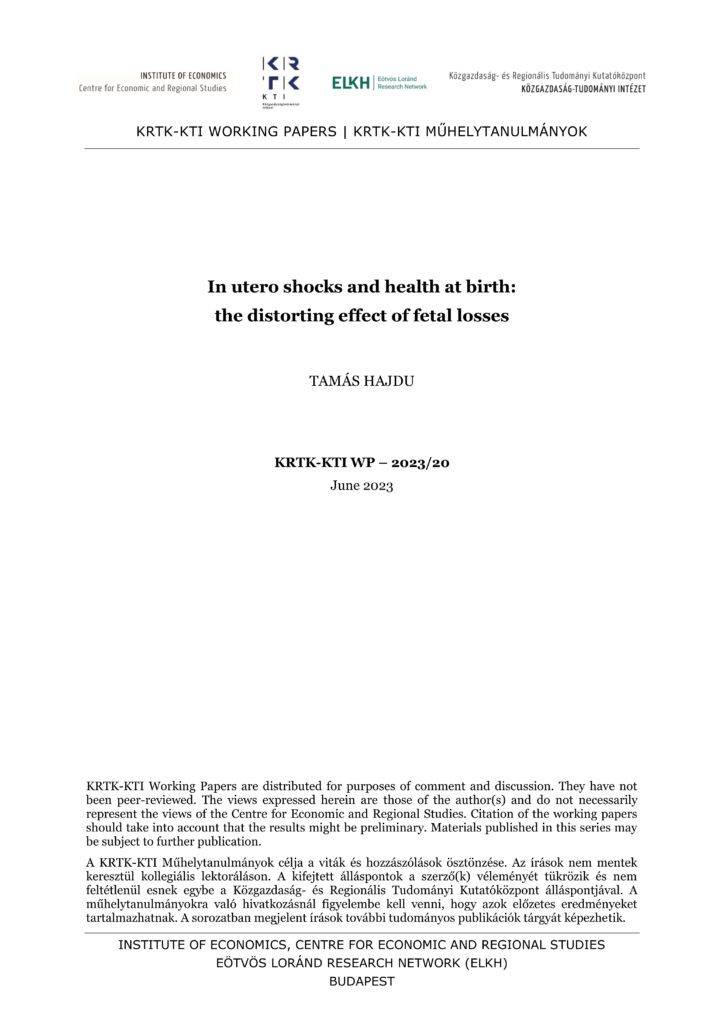
Research on the effect of in utero shocks on health at birth may be influenced by in utero selection. This study outlines a conceptual framework and shows that the results of the standard empirical approach are biased if (i) the exposure changes the probability of fetal death and (ii) health differences exist between deceased and […]
The Labor Market Effects of Disability Benefit Loss
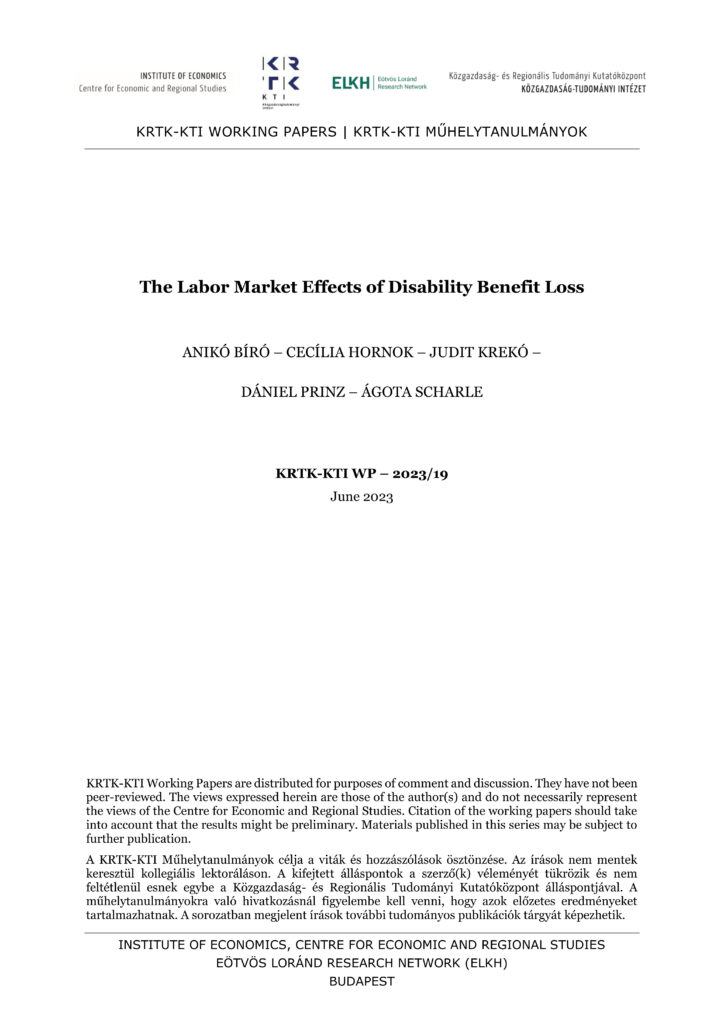
Disability benefits are costly and tend to reduce labor supply. While costs can be reduced by careful targeting, correcting past eligibility rules or assessment procedures may entail welfare costs. We study a major reform in Hungary that reassessed the health and working capacity of a large share of beneficiaries. Leveraging age and health cutoffs in […]
Geographic and Socioeconomic Variation in Healthcare: Evidence from Migration
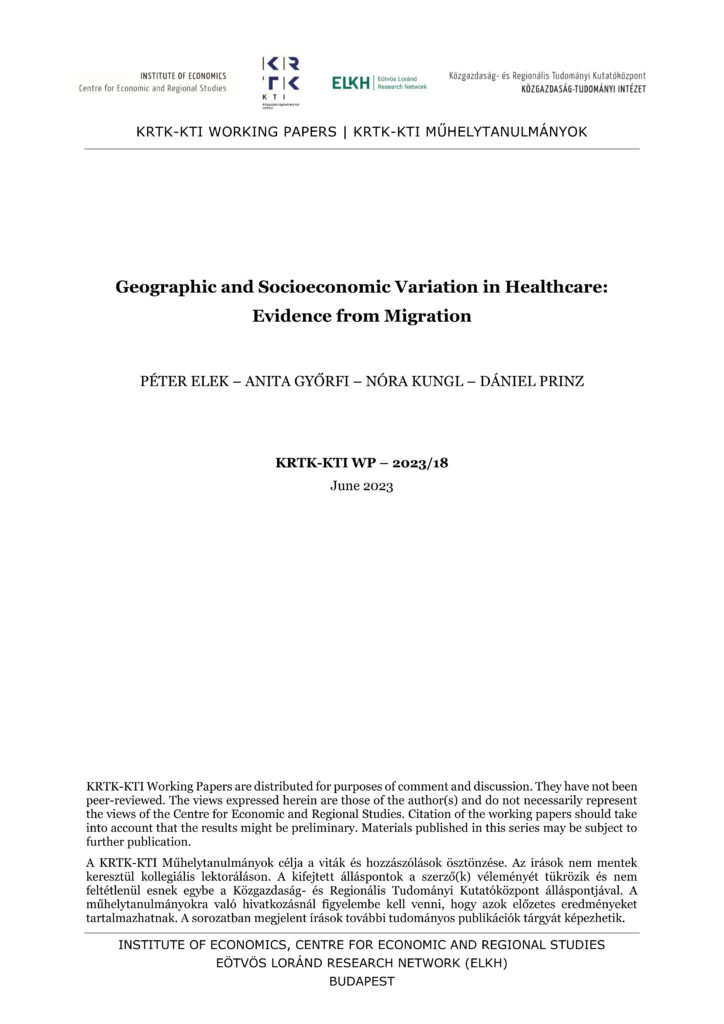
We study variation in healthcare utilization across geographies and socioeconomic groups in Hungary. Exploiting migration across geographic regions and relying on high-quality administrative data on healthcare use and income we show that the role of place-specific supply factors is heterogeneous across types of care and across socioeconomic groups. Overall, place-specific factors account for 68% of […]
The Incentive Effects of Sickness Benefit for the Unemployed – Analysis of a Reduction in Potential Benefit Duration
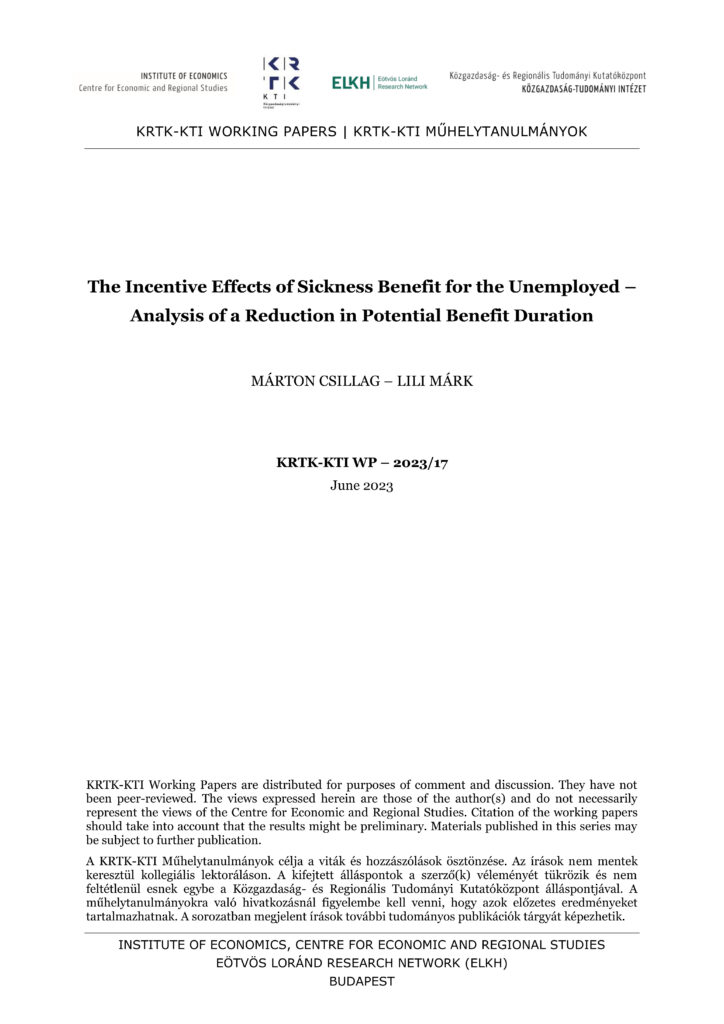
In Hungary, employees could claim sickness insurance benefit within 3 days of job-loss, which would enable them to extend their benefit duration by up to 90 days. The maximum number of days of this ‘passive sickness benefit’ was halved in 2007. We first investigate whether claiming passive sickness benefit was related to the monetary advantage […]
Inequalities in regional excess mortality and life expectancy during the COVID-19 pandemic in Europe
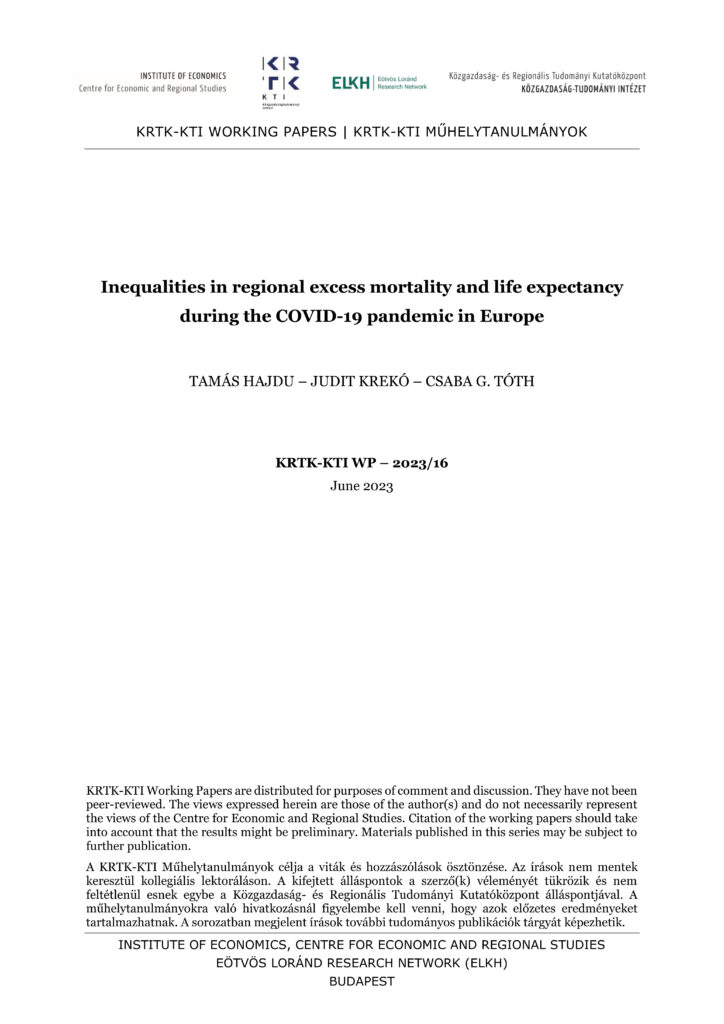
Using data for 201 regions (NUTS 2) in Europe, we examine the mortality burden of the COVID-19 pandemic and how the mortality inequalities between regions changed between 2020 and 2022. We show that over the three years of the pandemic, not only did the level of excess mortality rate change considerably, but also its geographical […]
Regional diversification and labour market upgrading: Local access to skill-related high-income jobs helps workers escaping low-wage employment
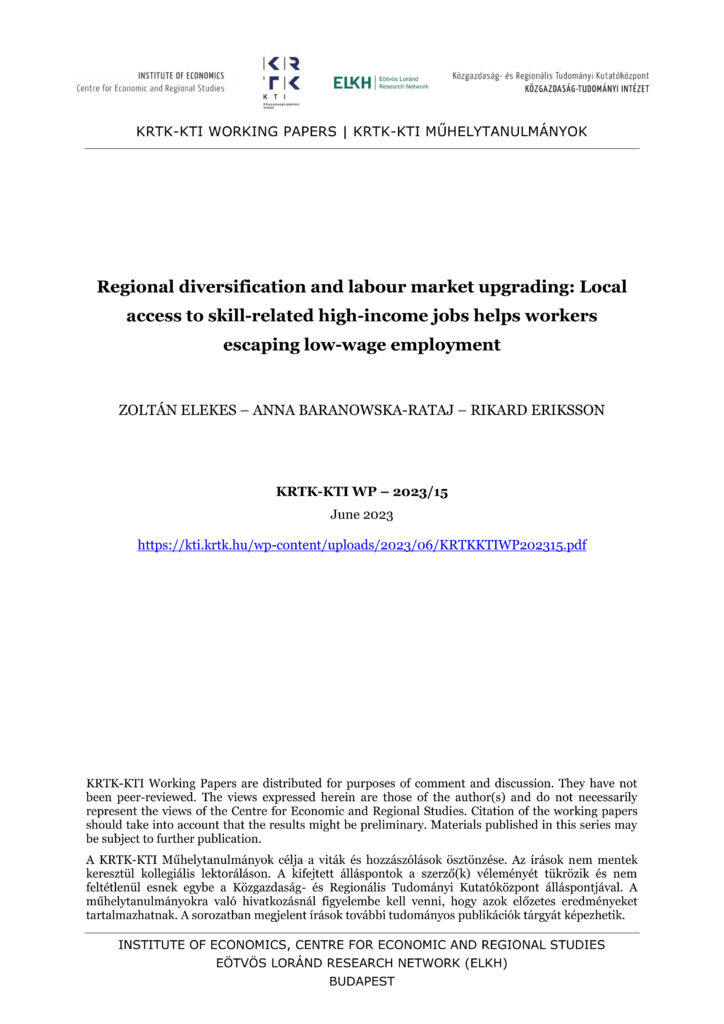
This paper investigates how the evolution of local labour market structure enables or constrains workers as regards escaping low-wage jobs. Drawing on the network-based approach of evolutionary economic geography, we employ a detailed individual-level panel dataset to construct skill-relatedness networks for 72 functional labour market regions in Sweden. Subsequent fixed-effect panel regressions indicate that increasing […]
The Great Rush
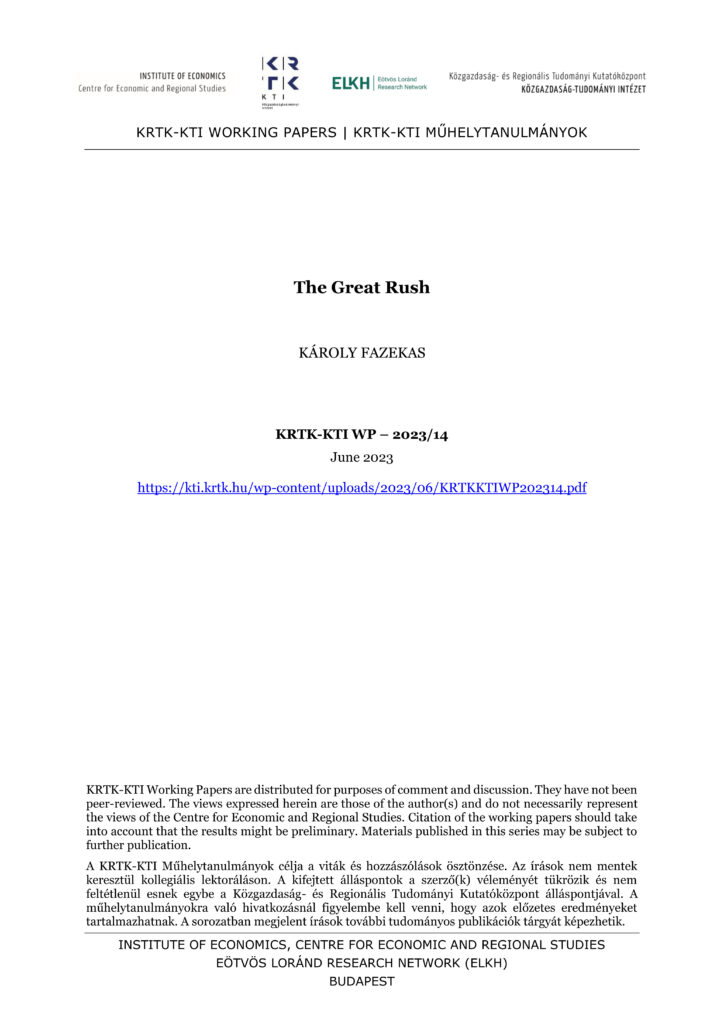
This paper provides a summary of the latest advancements in generative artificial intelligence using large language models over the past six months. The impact of this breakthrough remains uncertain, but it is evident that GPT is a General-Purpose Technology (GPT) that will significantly alter various aspects of our economy and society in ways that are […]


